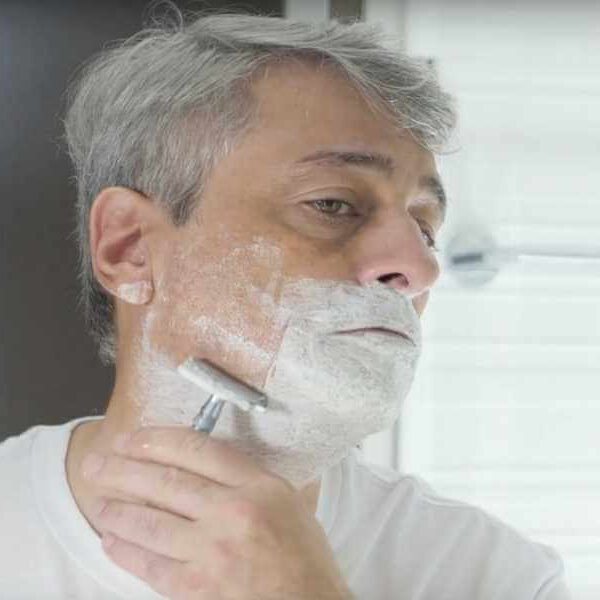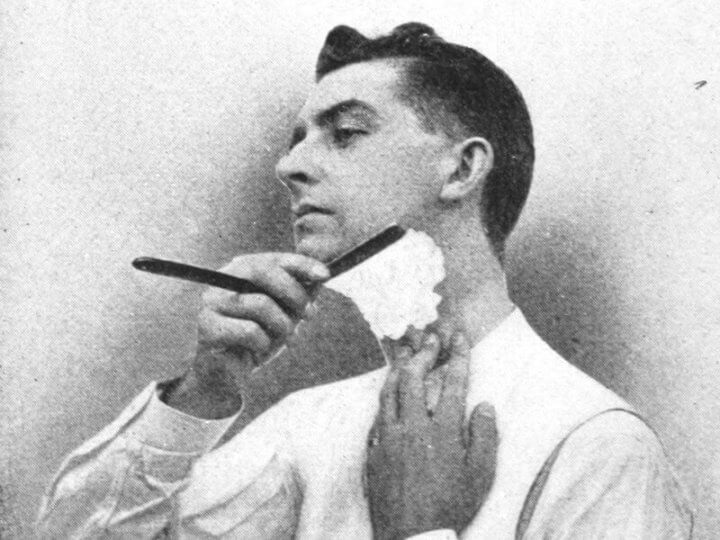
When it comes to spirituality and personal grooming practices, shaving might not be the first thing that comes to mind. However, for many individuals, there is a deep connection between the two. Shaving can be seen as more than just a mundane task; it can be a spiritual practice that holds symbolic meaning and significance.
The Relationship and significance Between Spirituality And Shaving
Shaving has been a part of human culture for centuries, and different cultures and religions have attached various meanings to this act. For some, shaving represents purification and renewal, both physically and spiritually. It can be seen as a way to shed old energy or negative emotions, allowing for a fresh start.
In certain spiritual traditions, shaving can also be seen as an act of surrender or letting go of attachments. By removing facial hair, individuals may feel a sense of liberation and a deeper connection to their inner selves or higher powers.
And shaving rituals can serve as a form of self-care and mindfulness. Taking the time to engage in a grooming routine can be an opportunity for reflection, meditation, or prayer. It allows individuals to focus on the present moment and cultivate a sense of inner peace.
Overall, the relationship between spirituality and shaving is deeply personal and subjective. It is about finding meaning in everyday actions and incorporating them into one’s spiritual journey. Whether it is through rituals, symbolism, or simply embracing the mindfulness of the act itself, shaving can become a spiritual practice for those who choose to infuse it with deeper significance.
Historical Perspectives on Shaving in Different Cultures

Shaving is a practice that has been deeply intertwined with cultural and religious beliefs throughout history. Understanding the relationship between spirituality and shaving requires an exploration of different cultural and religious beliefs surrounding this practice.
Different cultural and religious beliefs surrounding shaving
- Religious Observances: In some religions, shaving is seen as a spiritual act of purification. For example, in Islam, men are encouraged to shave their facial hair as part of their religious observance. Similarly, in Sikhism, maintaining uncut hair is considered a symbol of spirituality.
- Cultural Traditions: In certain cultures, shaving is associated with rites of passage or specific rituals. For instance, in ancient Egypt, both men and women would shave their entire bodies as a way to maintain cleanliness and hygiene. In Japan, the act of shaving one’s head is often associated with Buddhist monks and signifies a renunciation of worldly desires.
- Spiritual Symbolism: Shaving can also hold symbolic meanings in spiritual practices. For example, some Native American tribes view shaving as a way to connect with their ancestors or to prepare for spiritual ceremonies.
Overall, the relationship between spirituality and shaving is complex and varies across different cultures and religions. It is important to respect and understand these diverse beliefs when considering the significance of shaving in a spiritual context.
Related Post: Ancient Shaving Rituals From Around the World
Spiritual Symbolism of Shaving in Various Religions

In Hinduism, shaving one’s head is seen as a symbol of surrendering one’s ego and attachments to worldly desires. It represents a fresh start on the spiritual path and signifies humility and devotion to the divine.
In Buddhism, monks shave their heads to renounce worldly attachments and embrace simplicity. Shaving symbolizes detachment from material possessions and the pursuit of inner peace and enlightenment.
In Sikhism, maintaining uncut hair and a beard is an important religious practice. It signifies acceptance of God’s will and the commitment to living a life of righteousness.
In some Native American traditions, shaving is part of purification rituals. It symbolizes shedding old energies, negative influences, and preparing oneself for spiritual ceremonies or rites of passage.
In Sufism, shaving the head represents the removal of ego and worldly distractions. It signifies a deeper connection with God and a focus on inner spiritual growth.
Overall, shaving can be viewed as a spiritual practice that signifies letting go of attachments, embracing simplicity, and cultivating a deeper connection with yourself.
Related Post: How To Relieve Stress And Uncertainty With A Shaving Ritual – With Video
Specific rituals or ceremonies that incorporate shaving as a spiritual act

- Religious Pilgrimages: In some religious traditions, pilgrims shave their heads or facial hair as a symbol of purification and humility. This act signifies letting go of worldly attachments and embracing a spiritual journey.
- Initiation Rites: In certain societies, shaving is part of initiation rituals for young boys transitioning into manhood. This act represents shedding their childhood and embracing adult responsibilities, often accompanied by spiritual teachings and guidance.
- Mourning Practices: Some cultures practice shaving as a way to mourn the loss of a loved one. Shaving one’s head or facial hair can symbolize grief, letting go, and starting anew after the loss.
- Spiritual Cleansing: Shaving can also be seen as a form of spiritual cleansing in certain traditions. Removing hair from the body is believed to purify the soul and create a closer connection to the divine.
These rituals and ceremonies demonstrate the deep-rooted connection between spirituality and shaving in various cultural and religious contexts. They serve as reminders of the power of rituals in connecting individuals to their inner selves and higher powers.
Shaving as a Form of Self-Discipline and Purification
For those on a spiritual journey, the act of shaving can hold deeper meaning beyond just grooming. It can be seen as a form of self-discipline and purification, contributing to one’s spiritual practices. Here are a few ways in which shaving can be viewed as a means of self-discipline and purification:
- Cleansing the Body: Shaving can be seen as a way to cleanse the body, removing unwanted hair and promoting cleanliness. This physical act can symbolize the removal of impurities and negative energies, allowing for a fresh start.
- Simplifying Life: Shaving can be considered a practice of simplicity, letting go of attachments to external appearances. By embracing a clean-shaven look, individuals may focus more on inner qualities and spiritual growth rather than being preoccupied with external beauty.
- Embracing Humility: Shaving can also be seen as an act of humility, as it removes the ego-driven desire to stand out or be noticed for one’s physical appearance. This practice encourages individuals to focus on inner virtues rather than external validation.
While the relationship between spirituality and shaving may vary across different belief systems, it is important to recognize that these practices are deeply personal and meaningful to those who choose to incorporate them into their spiritual journeys.
How shaving can be a mindful activity that promotes presence and self-awareness

When one engages in shaving mindfully, they bring their full attention to the present moment. This means focusing on the sensation of the razor against the skin, the sound of the blade gliding, and the scent of the shaving cream. By being fully present, individuals can cultivate a sense of calm and relaxation during this otherwise ordinary task.
Shaving can also serve as a time for self-reflection and self-care. As individuals carefully groom themselves, they have an opportunity to connect with their bodies and practice self-compassion. This act of self-care can promote a positive mindset and improve overall well-being.
Incorporating mindfulness into shaving can enhance the overall experience and contribute to a greater sense of well-being. So next time you reach for your razor, take a moment to approach it with mindfulness and see how it transforms your daily routine into a meaningful practice.
Shaving as an Act of Surrender and Letting Go
Shaving can be a symbolic act of letting go. Just as one removes unwanted hair, they can also let go of negative thoughts or emotions that no longer serve them. This act of release can create space for new beginnings and personal growth.
How shaving can symbolize surrendering attachments and letting go of ego
When we shave, we can let go of attachments to our physical appearance. We remove the hair that may have become a source of identity or vanity, symbolizing a release of ego. By surrendering these attachments, we open ourselves up to a deeper connection with our true selves and the divine.
Shaving can also be seen as a metaphor for shedding old beliefs, habits, and negative energies. Just as we remove the hair from our face or body, we are letting go of what no longer serves us on a spiritual level. This act of surrender allows us to create space for new growth, transformation, and spiritual awakening.
In addition, shaving can be a meditative practice. As we carefully shave, we can focus on the present moment, bringing mindfulness to each stroke of the razor. This mindful shaving can help us cultivate inner peace and clarity.
Overall, the relationship between spirituality and shaving lies in the symbolism of surrendering attachments and letting go of ego. By embracing this practice with intention and mindfulness, we can deepen our spiritual journey and connect with our true essence.
Related Post: Morning Ritual Ideas (Around Shaving) To Give Meaning To Your Day
Personal Experiences and Testimonials

When it comes to the relationship between spirituality and shaving, personal experiences and testimonials can provide valuable insights. Many individuals have shared their stories, highlighting the connection they feel during the act of shaving and their spiritual journey. Here are a few examples:
John, a spiritual practitioner, believes that shaving is a meditative practice for him. He finds that the repetitive motion of shaving helps him focus his mind and brings a sense of calmness and clarity to his thoughts.
Steve, a follower of a specific religious tradition, sees shaving as an act of devotion. He believes that by grooming himself with care and intention, he is honoring his body as a sacred vessel.
Mark, a yoga enthusiast, incorporates shaving into his morning routine as a way to prepare himself for his spiritual practice. He sees it as a symbolic act of shedding old layers and embracing new beginnings.
These personal stories and testimonials demonstrate the unique ways in which individuals connect their spiritual beliefs with the act of shaving. While the relationship between spirituality and shaving may vary for each person, these experiences highlight the potential for mindfulness, devotion, and self-care in this daily ritual.
Conclusion
While there is no one-size-fits-all answer, it is clear that shaving can hold different meanings and significance for individuals based on their spiritual beliefs and practices.
For some, shaving may be seen as a ritualistic act that symbolizes purification, letting go of negative energy, or embracing change. Others may view it as a way to connect with their spiritual self or maintain a sense of discipline and self-control.
It is important to remember that spirituality is a deeply personal and subjective experience, and the relationship between spirituality and shaving will vary from person to person. It is up to each individual to determine how shaving aligns with their spiritual journey and beliefs.
Ultimately, whether you choose to incorporate spirituality into your shaving routine or not, what matters most is finding a practice that brings you peace, self-reflection, and a sense of connection to something greater than yourself.

I too find shaving to be very meditative and particularly enjoy devoting time to the process selecting soaps, aftershave, razors, then building the lather and the very tactile act of shaving itself. I’ve enjoyed the Sharpologist for years now and hope that my enjoyment of my morning ritual continues for many years to come.